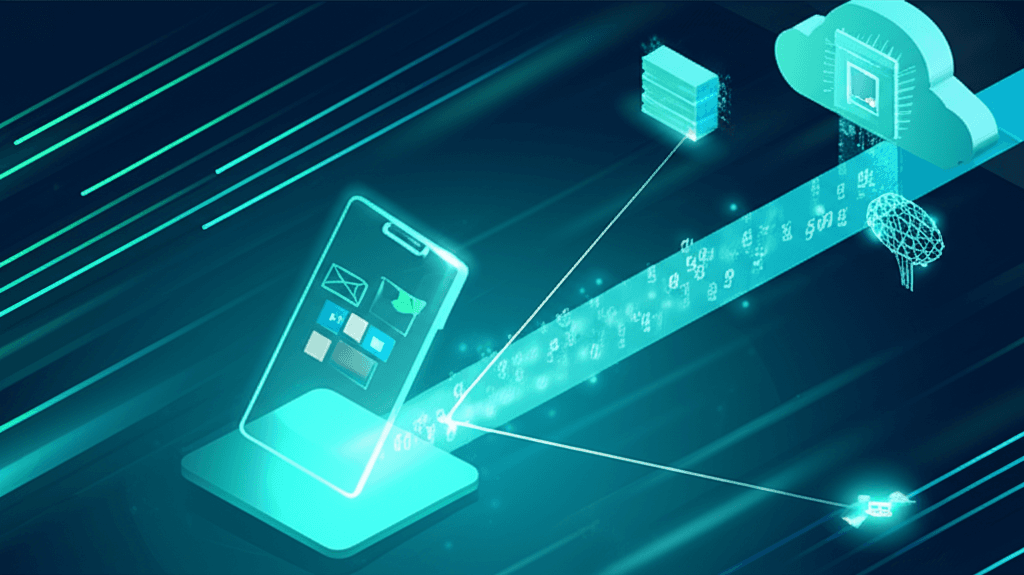Apple Redefines AI with Privacy-First Intelligence, Shunning Speed for Substance
Apple's patient AI approach prioritizes privacy and seamless integration, betting a deliberate pace will redefine personal intelligence.
August 6, 2025

In the high-stakes race to dominate the artificial intelligence landscape, Apple has chosen a decidedly different track. While competitors like Google and Microsoft have sprinted to release a torrent of AI tools, Apple, under the leadership of Tim Cook, is executing a more deliberate, measured strategy. At its Worldwide Developers Conference, the company unveiled "Apple Intelligence," its brand for a suite of AI-powered features.[1] However, these much-anticipated tools will see a staggered rollout, with many users not gaining full access until well into 2025 or even 2026.[2][3] This cautious approach has drawn criticism, with some analysts suggesting Apple is falling dangerously behind.[4] Yet, this deliberate pace is not one of inaction, but of calculated strategy, focusing on privacy, deep ecosystem integration, and perfecting user experience over being first to market.[5][6][7]
At the heart of Apple's push is a fundamental redefinition of what consumer AI should be. Instead of focusing on broad, general-knowledge chatbots, Apple Intelligence is designed to be deeply personal and contextually aware.[8] The system leverages on-device processing to understand a user's personal information—their contacts, calendar, messages, and photos—without collecting that data.[9] This privacy-first architecture is a cornerstone of Apple's philosophy.[10] For more complex tasks that require greater computational power, Apple has developed Private Cloud Compute, which extends the security of on-device processing to the cloud using Apple silicon servers.[11][9] Data sent to these servers is not stored or made accessible to Apple, a promise the company says independent experts can verify.[11][9] This hybrid on-device and secure cloud model allows Apple to offer powerful features while maintaining its long-standing commitment to user privacy, a key differentiator in an industry often criticized for its data-hungry practices.[12]
The features themselves are designed to be seamlessly woven into the fabric of iOS, iPadOS, and macOS.[13] These include system-wide Writing Tools for proofreading and summarizing, an Image Playground for creating AI-generated images and "Genmoji," and a significantly smarter Siri.[1][14] The revamped Siri will be able to understand context better, maintain conversational flow, and eventually take actions within and across apps, like finding a photo of a friend and adding it to a note.[15] However, the rollout of these features is gradual. The initial release in the fall with iOS 18.1 will offer a subset of capabilities, like writing tools and notification summaries, and will be limited to newer devices like the iPhone 15 Pro and M-series chip-powered iPads and Macs.[1][16] More advanced Siri functionalities, such as on-screen awareness and deeper app control, are not expected until later in 2025.[2][16] This phased approach, while frustrating for some users, reflects Apple's historical pattern of waiting for technology to mature before a wide release.[5][3]
To accelerate its capabilities, particularly in areas of broad world knowledge, Apple has forged a significant partnership with OpenAI.[17][18] ChatGPT's capabilities, powered by the GPT-4o model, will be integrated into experiences like Siri and system-wide Writing Tools.[19] When Siri determines a query could be better handled by an external model, it will ask the user for permission before sending the request to ChatGPT.[17][18] Crucially, these requests are not stored by OpenAI, and users' IP addresses are obscured, maintaining a layer of privacy.[19] This partnership is seen by some as an admission of weakness in Apple's own large language model development but is also viewed as a pragmatic move, giving Apple access to state-of-the-art AI without having to build everything from the ground up.[6] Apple has also indicated it is open to integrating other AI models in the future, suggesting a flexible, best-in-class approach rather than a dependency on a single partner.[18][6]
This methodical strategy is not without internal pressure. Tim Cook has reportedly rallied employees, framing the AI revolution as an existential priority "as big or bigger than the internet or the iPhone."[20] He has emphasized that while Apple has rarely been first in new tech categories, it has often succeeded by redefining them.[7] The company has been increasing its R&D spending, with a significant portion of new hires focused on this area, and is building out its own AI infrastructure, including a new server facility and a custom cloud chip codenamed Baltra.[21][22][7] This internal push, combined with strategic partnerships and a clear, albeit slow, product roadmap, underscores a comprehensive effort to compete. Some analysts remain skeptical, pointing to the lead competitors have already established and the risk of user attrition if Apple's ecosystem lags in AI features.[4][23][24]
In conclusion, Apple's journey back into the AI race is a calculated gamble. By prioritizing "personal intelligence" and privacy over speed, the company is betting that users will ultimately prefer a more thoughtful, integrated, and secure AI experience.[13][8] The slow rollout of Apple Intelligence and the partnership with OpenAI are not signs of a company sitting on the sidelines, but rather a deliberate strategy to enter the AI arena on its own terms.[3] While critics argue Apple is late to the game, the company is methodically laying the groundwork—from custom silicon and secure cloud infrastructure to deep software integration—to deliver a suite of AI features that feel less like a tacked-on tool and more like an intuitive extension of the user. Whether this patient, methodical approach will allow Apple to once again redefine a technology category remains to be seen, but it is a clear reflection of the company's long-held product philosophy.
Sources
[5]
[8]
[9]
[10]
[11]
[12]
[13]
[14]
[15]
[16]
[17]
[18]
[19]
[20]
[21]
[22]
[23]
[24]